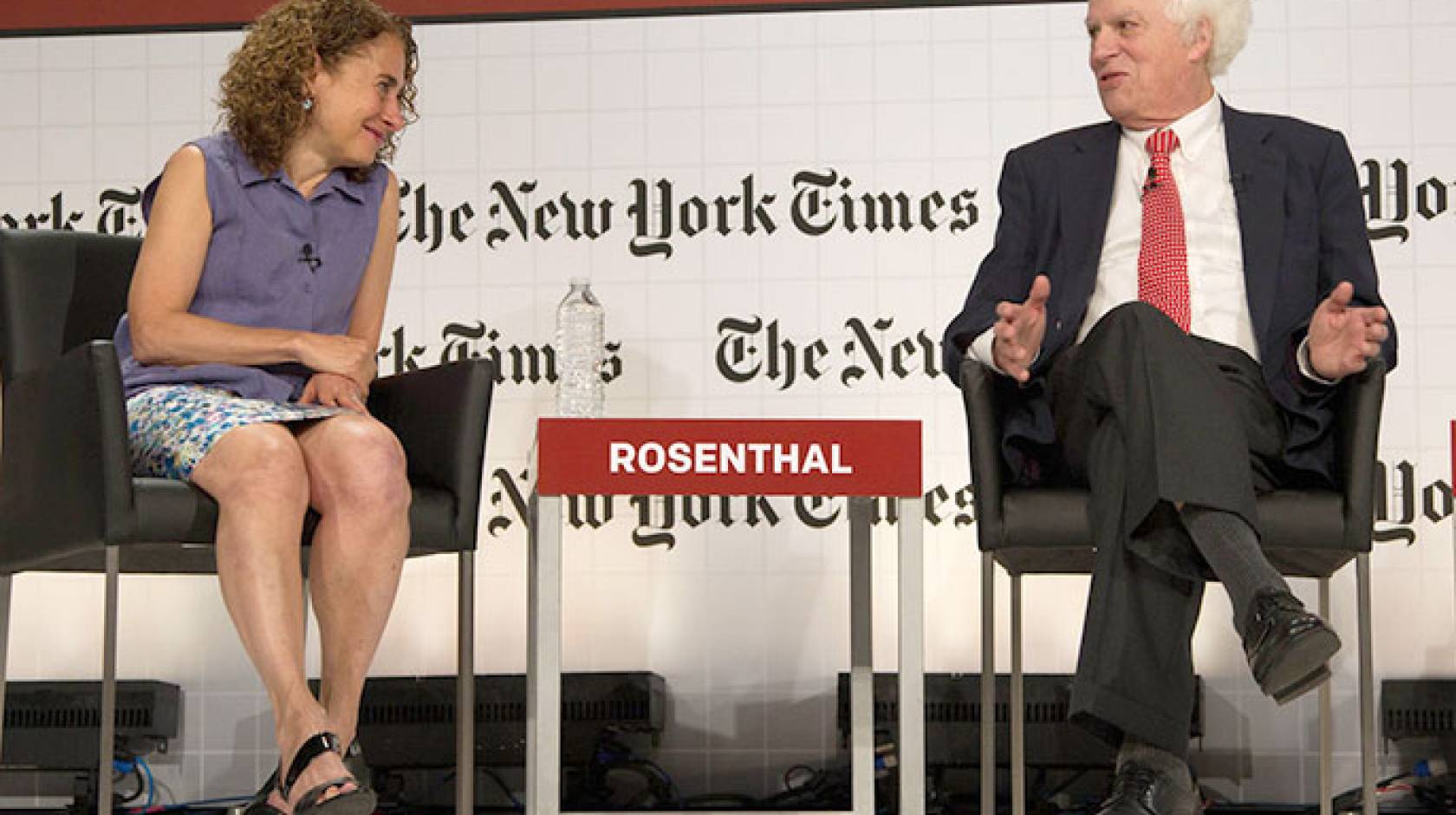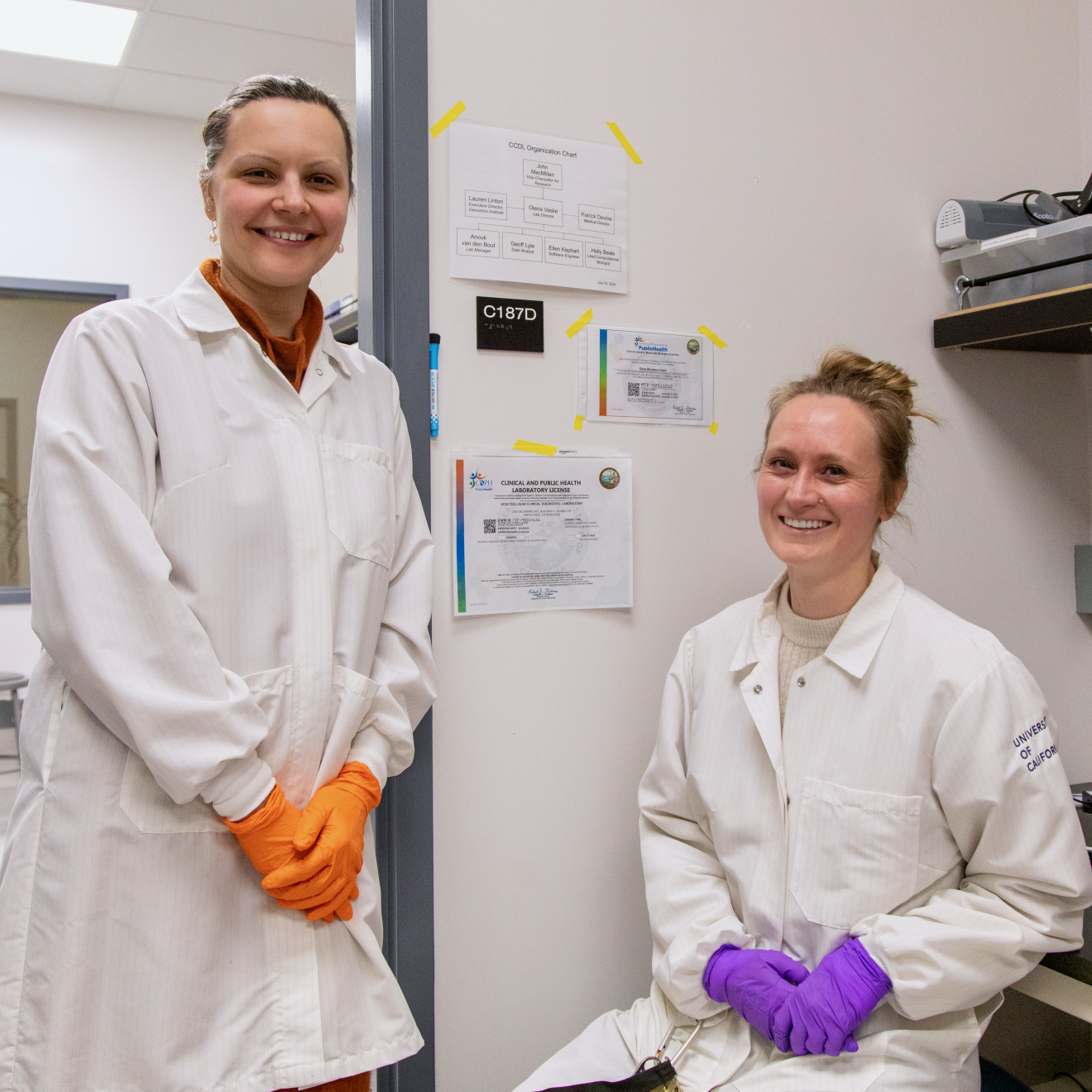Alec Rosenberg, UC Newsroom

Nobel Prize winner Stanley Prusiner is not resting on his laurels.
Instead, the 72-year-old UC San Francisco neurologist has set his sights on solving one of the biggest challenges facing health care today: Alzheimer’s disease.
Prusiner made a passionate plea for tackling Alzheimer’s and other neurodegenerative diseases Thursday (May 29) at the New York Times Health for Tomorrow conference at UCSF Mission Bay Conference Center. The conference, which featured experts from the University of California and across the country, addressed the changing landscape of health care.
Alzheimer’s already has a large impact on health care: It’s the sixth-leading cause of death in the U.S. — more than breast cancer and prostate cancer combined — and nearly half of people age 85 and older have the disease, Prusiner said. Without action, it will get worse — the prevalence of the disease is projected to triple by 2050 to as many as 16 million Americans.
“This is a huge, huge problem, and we’re not doing nearly enough,” said Prusiner, a UC San Francisco professor of neurology and director of the Institute for Neurodegenerative Diseases. “This is such an important area. There is no substitute for research. That’s going to really make a difference.”
Filling the pipeline
The National Institutes of Health provides only $500 million in research funding for Alzheimer’s, compared with more than $5 billion for cancer research, even though each costs society about $200 billion a year, Prusiner noted.
While many drugs treat cancer and hundreds more are in the pipeline, no single drug today halts or slows neurodegenerative diseases, he said. Prusiner, who just wrote a memoir, “Madness and Memory,” about his Nobel Prize-winning discovery of prions — infectious proteins that could be at the root of neurodegenerative diseases such as Alzheimer’s and Parkinson’s — aims to change that.
In April, UCSF formed a new collaboration with Japan-based pharmaceutical company Daiichi Sankyo Co. Ltd. This joint venture, capitalizing on Prusiner’s research, is focusing on developing drugs and molecular diagnostics for multiple neurodegenerative diseases, including Alzheimer’s and Parkinson’s.
“I’m very optimistic now that we are going to get there,” Prusiner said. “This is a huge step forward. We need 10 more of these around the world.”
Making progress
UC is conducting research on health’s most pressing problems, teaching the next generation of health professionals and working to improve health care quality, access and affordability, said UC President Janet Napolitano, who delivered welcoming remarks at the conference.
“There are no quick fixes, but I think working together we can make steady progress,” Napolitano said.
Indeed, research is being conducted throughout UC on Alzheimer’s and many other health issues. Napolitano noted that UC San Francisco leads a team that was just awarded a $26 million federal grant — part of President Obama’s Brain Initiative — to create an implantable device that will retrain the brain to recover from mental illness. She also pointed to research by conference speakers David Kilgore of UC Irvine and Michael Fischbach of UC San Francisco.
Countering 'diabesity'

Kilgore, a clinical professor of family medicine, talked about the problem of “diabesity”: Diabetes rates have tripled in the last 20 years, while more than two-thirds of adults are considered to be overweight or obese. Among Kilgore’s patients at a UC Irvine clinic, 70 percent have diabetes, often in combination with other chronic diseases.
“The challenge of chronic disease has completely changed what it’s like to be a primary care physician,” Kilgore said.
More prevention is needed, Kilgore said. He started group medical visits for patients with diabetes. They receive extra information about nutrition, exercise and receive a healthy cooking lesson.
“They love it,” Kilgore said.
Going with the gut

Fischbach, a UC San Francisco assistant professor of bioengineering and therapeutic sciences, discussed his research on the gut with collaborator Justin Sonnenburg, a Stanford University microbiologist who has a bachelor’s degree from UC Davis and a doctorate from UC San Diego. They are studying gut bacteria and how it could help reveal the causes and new treatments for Crohn’s disease and obesity.
“The beauty of being in basic research is you don’t know where you’re going to end up,” Fischbach said after their panel presentation. “It’s nice to be on a journey where you don’t know where the ship lands. I hope it’s going to improve human health.”
Seeking solutions
The Health for Tomorrow conference addressed issues ranging from the impacts of the Affordable Care Act to rethinking how to deliver care in the 21st century to issues of access, affordability and applying technology. Speakers included Marilyn Tavenner, administrator of the Centers for Medicare & Medicaid Services; Diana Dooley, secretary of the California Health and Human Services Agency; New York Times correspondent Elisabeth Rosenthal; CEOs Toby Cosgrove of the Cleveland Clinic and Bernard Tyson of Kaiser Permanente; and several with UC ties.
As part of the conference, five entrepreneurs were invited to give short talks about their health-related startup companies. Three of them studied at UC:
- Erik Douglas, CEO of CellScope, has a doctorate degree from UC Berkeley and UC San Francisco. The company’s first product, CellScope Oto, turns a smartphone into a digitally connected otoscope, enabling remote care for ear infections, the leading reason for pediatric visits.
- Anupam Pathak, Lift Labs founder and CEO, has B.S. and M.S. degrees from UC Berkeley. Lift Labs makes active stabilization tools for people living with tremor. Its pocket-sized Liftware, which has a spoon and other attachments, is a “Swiss Army knife for people with tremors.”
- Joanna Strober, founder and CEO of Kurbo Health, has a J.D. from UCLA. She founded Kurbo after becoming concerned about the consequences of her middle son being overweight. Kurbo has developed a mobile app designed for children and their families to help them lose weight and live healthier lives.
The Health for Tomorrow conference can be viewed on demand, broken down by panel, at www.nythealthfortomorrow.com.

